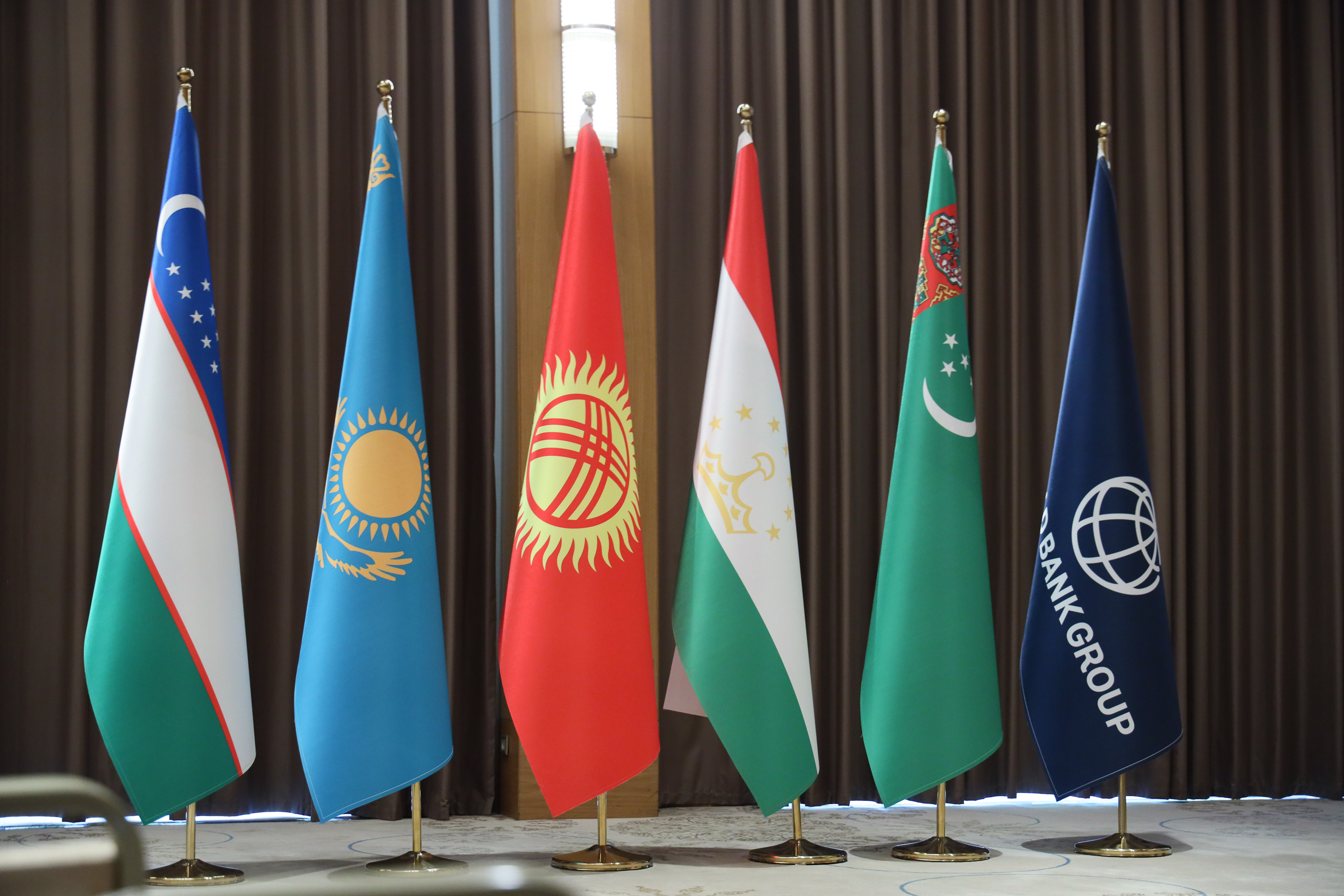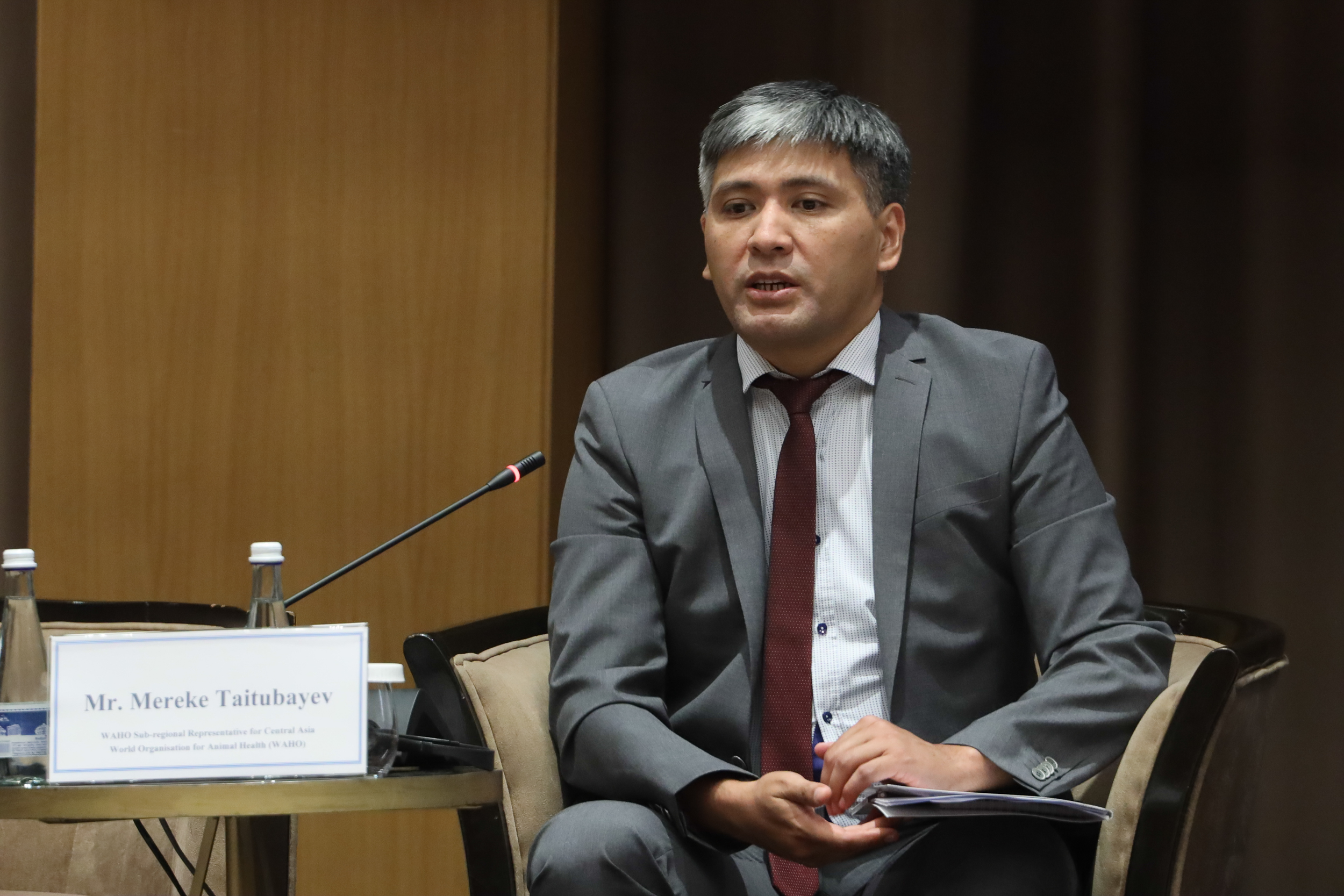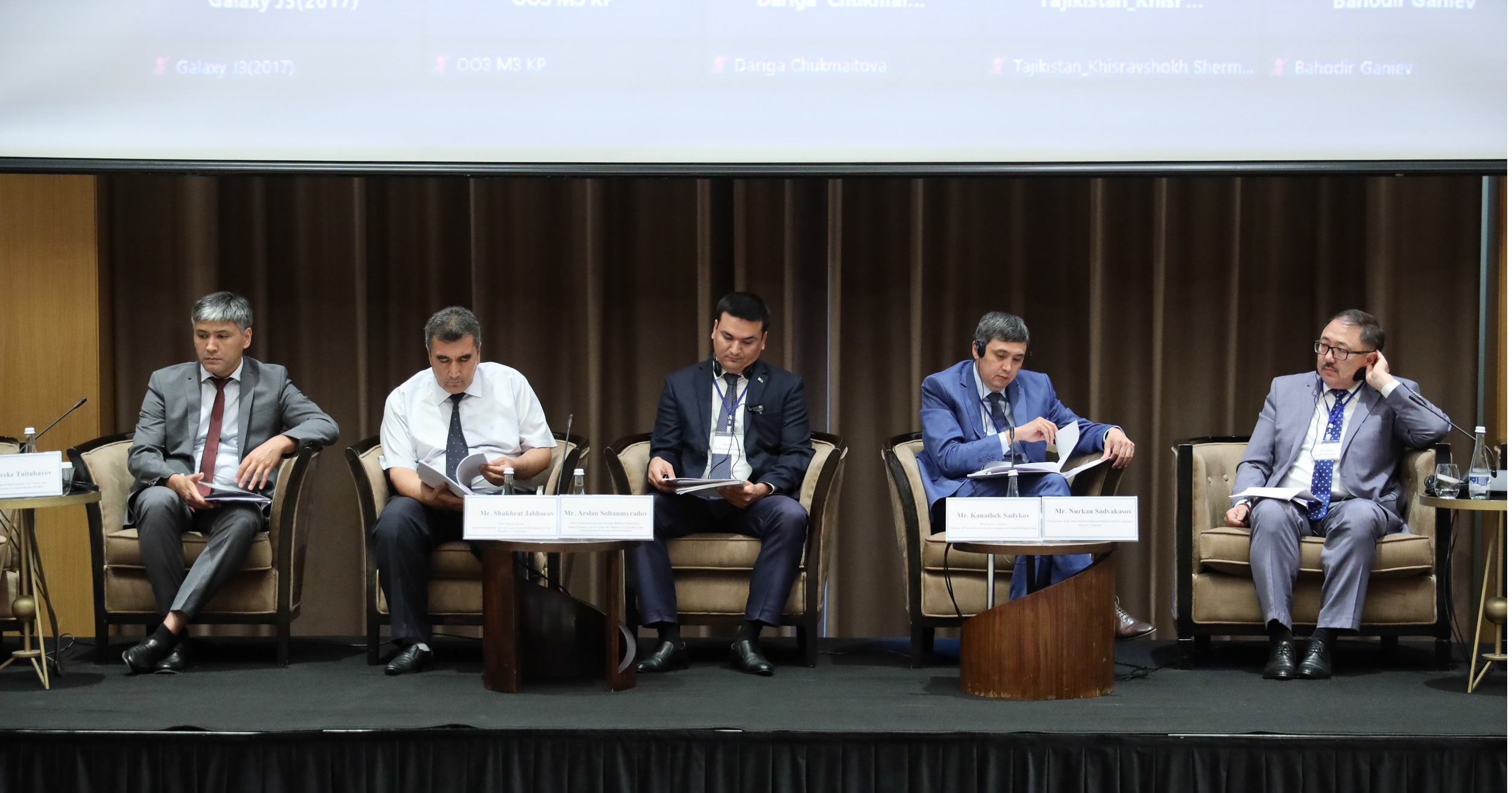
Central Asian countries are committed to strengthening cooperation to protect food systems and prevent future disease outbreaks
The international organisations and agencies have been promoting regional and cross-sectoral cooperation for a One Health approach to the animal, environmental, and human health issues in Central Asia. The World Bank in close coordination with the Food and Agriculture Organization (FAO), World Organisation for Animal Health (WOAH), World Health Organization (WHO), and UN Environment Program (UNEP) organized a high-level meeting involving senior government officials from the five Central Asia countries responsible for the human, animal, wildlife, environmental health, and agricultural sectors.
Over 50 participants from Central Asia and various international institutions including senior officials of ministries, state committees, and services of Kazakhstan, Kyrgyz Republic, Tajikistan, Turkmenistan, and Uzbekistan responsible for agriculture and food safety, healthcare, sanitary and epidemiological control, veterinary, livestock development, and environment protection attended the meeting. They discussed the scope and broad lines of Central Asia One Health Framework for Action, ways to strengthen the regional collaboration in protecting food systems and preventing future pandemics, animal and human disease outbreaks, and antimicrobial resistance.
The objective of the high-level meeting in Tashkent was to operationalize a One Health approach in Central Asia. Managing global health risks requires full cooperation between the animal, environmental, and public health sectors, at the national, regional, and international levels.
“The World Bank has been actively engaged in the region for three decades, including through financing multimillion projects in the areas of agriculture, health, and livestock implemented by the Central Asian governments,” said Tatiana Proskuryakova, World Bank Regional Director for Central Asia. A comprehensive response to implementing a One Health approach in the region will only be possible through high-level agreement and coordinated action between the Central Asian countries. Thanks to its financial resources and multisectoral expertise, the World Bank is well-placed to help them achieve this goal, working in close collaboration with national and international partners.
Dr. Mereke Taitubayev, Sub-Regional Representative, pointed out that the global initiative of One Health was promoted a long time ago, but only recently has the topic been taken into consideration. As a panelist on the topic “Experiences from the control of zoonoses, antimicrobial resistance and food-borne diseases” Dr. Taitubayev mentioned that the Regional One Health Mechanism and its Partnership Platform, established recently, are supposed to make good coordination between IOs and support countries in the implementation on the national level. According to the regional strategy, One Health Mechanism will cover zoonoses, AMR, food-borne diseases, and environmental health.
We estimate that about 75% of all human emerging infectious diseases have an animal origin (e. g. SARS, Ebola, swine and avian flu, brucellosis, and rabies) and are thus zoonoses. Out of the five new human diseases that emerge each year, at least three are of animal origin.
Dr Mereke Taitubayev noted that our Representation for Central Asia in cooperation with the regional partners (FAO, WHO) constantly carries out multisectoral events on AMR, zoonoses, Multisectoral Coordination Mechanism, National Bridging Workshop, etc. reflected needs of countries.
At the end of the meeting, participants analyzed existing risks for animal and human health in Central Asia, including their countries’ experience in addressing zoonotic diseases, AMR, and food safety concerns. They considered current challenges and opportunities for creating regional collaboration mechanisms to be prepared for future animal and human disease outbreaks and to address the issues associated with transborder movements of animals and their products. Participants discussed further steps needed to prepare Central Asia One Health Framework for Action and establish relevant working groups. This document would provide a blueprint for the countries in the region to move forward with concrete actions, as well as will include a roadmap for investments at national and regional levels.



